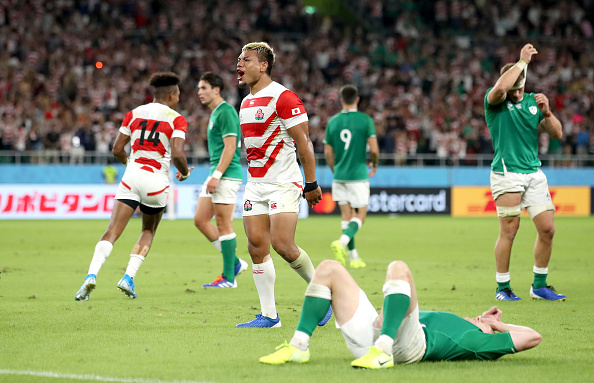Steps must be taken to ensure that the global game becomes more competitive before the next World Cup, writes former Bok captain JEAN DE VILLIERS in the latest issue of SA Rugby magazine.
Another bumper issue: Kolbe soars to new heights
It was fantastic to see Japan securing a win against Ireland in the pool stage of the World Cup. That result came on the back of another big upset, when Uruguay beat a more fancied Fiji side.
I was reminded of Japan’s win against the Springboks at the 2015 World Cup in England. We will never be proud of that result as South Africans but, when one takes a step back and looks at that result objectively, one can see how important it was for the game as a whole. People remember that moment and are still talking about it.
The World Cup needed more results like that during the pool stage and a less predictable quarter-final lineup. It’s vital that we have more of the tier-two nations competing with the big boys and more teams vying for the World Cup title. That will lift the standard of the tournament and the interest in the sport across the globe.
Six teams travelled to the World Cup last month with a realistic chance of winning the title. That’s a sign that the other top teams are closing the gap between themselves and the All Blacks and that the game is heading in the right direction.
But can that process be accelerated to the point where we have 12 teams having the potential to win the title? This is the issue that must be addressed in the buildup to the 2023 tournament in France.
Consider how far Argentina have come over the past seven years. They have beaten the Springboks in South Africa and the Wallabies in Australia. Would they have secured those landmark victories if they hadn’t been exposed to a high level of competition in tournaments such as Super Rugby and the Rugby Championship?
The problems afflicting the Pacific nations are well documented. However, one has to wonder how far Fiji, Samoa or Tonga could go if their players were involved in a high level of competition on a regular basis. Rugby is growing in the US, but it may be some time yet before we see the Eagles challenging the tier-one nations.
Perhaps the top nations could do more to grow the game. All the talk about Georgia joining an expanded Six Nations has come to nought. The proposal for an international competition featuring 12 teams from the northern and southern hemispheres was shot down. One has to wonder how the tier-two teams are going to catch up if a tournament such as this one isn’t implemented sooner rather than later.
At the beginning of October it wasn’t easy to predict which teams would qualify for the World Cup playoffs. New Zealand, South Africa, Ireland, Scotland, Wales, Australia and England are usually favourites, and the only mystery is whether France or Argentina progress to the next round. Japan have been the surprise package this year and I’d like to see more tier-two teams pushing for a spot in the last eight.
There’s been a lot of talk in Formula One about how predictable the sport has become. Ross Brawn, the managing director at Formula One Management, actually said F1 has become too boring. It needs the kind of results we’ve seen in rugby, with Japan’s big win over Ireland being the prime example.
It’s encouraging to see that teams like Japan have become more competitive. If more teams are put in a position to score those kinds of results the quality of the World Cup will improve, and the tournament will attract more interest and create a better product.
Photo: Cameron Spencer/Getty Images





